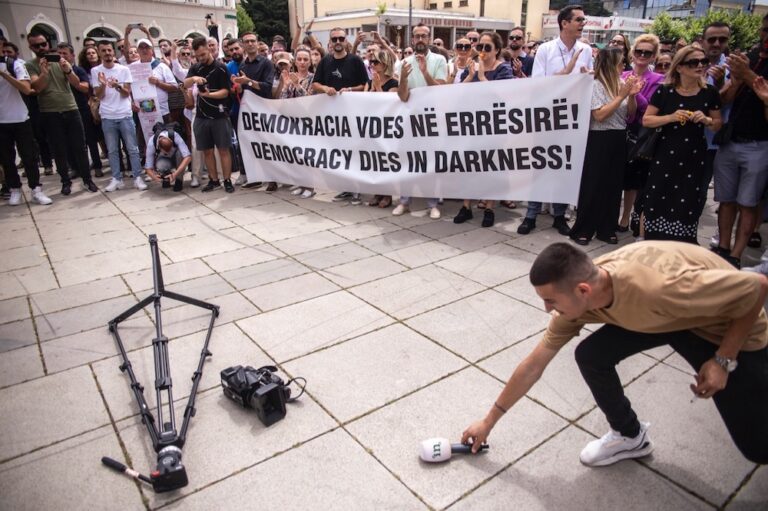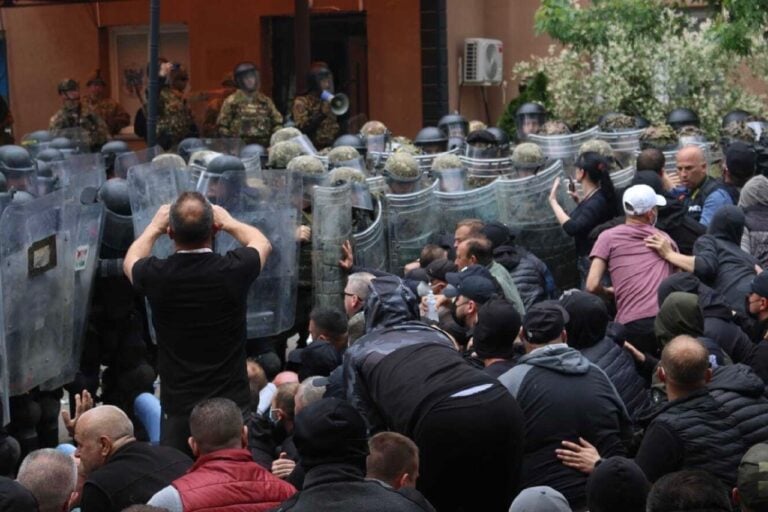Recently the Ministry of Trade and Industry decided to cut all relations with Pristina daily "Zeri", while the imam of the main Mosque in Pristina publicly attacked "Koha Ditore" newspaper.
(IPI/IFEX) – Vienna, 26 July 2011 – The Vienna-based South East Europe Media Organisation (SEEMO), an affiliate of the International Press Institute (IPI), calls on the Kosovo authorities, political parties, and business and religious leaders to abstain from pressuring media and urges them to contribute to creating an environment in which media can operate freely.
In Kosovo, political and other forms of pressure are common. Both public and private media outlets are targeted. During the past two weeks, to mention but a few incidents, the Ministry of Trade and Industry decided to cut all relations with Pristina daily Zeri, while the imam of the main Mosque in Pristina, Shefqet Krasniqi, publicly attacked Koha Ditore newspaper.
In a separate development, the only public broadcaster, Kosovo Radio-Television (RTK), has been the focus of renewed political debate regarding the television time allotted to governing and opposition parties during news hours. Neither side promotes the concept of public broadcasting: they seem to perceive the public service as a shared party service.
On 16 July 2011, Mimoza Kusari-Lila, Minister of Trade and Industry, decided to end cooperation with Zeri. In an official letter the Ministry claimed to be dissatisfied with Zeri’s coverage of Ms. Kusari-Lila’s activities.
On 22 July 2011, Pristina’s imam Shefqet Krasniqi publicly labeled Koha Ditore as an “evil medium” and accused it of staging a campaign against him. His anger was sparked by an article on a lawsuit against him.
Meanwhile, government and opposition parties have been unable to pass a law that would regulate the functioning of RTK. It is now expected that the law will be discussed during the autumn 2011 parliamentary session. However, there is no agreement on how to address the main problem: RTK financing. The broadcaster has been financed by the parliament on a short-term basis and Kosovo’s government controls most of the managerial positions. Without an independent and secure source of financing, RTK will have difficulties operating as a public service.
“Public broadcasters are not government or party-sponsored broadcasters,” said Oliver Vujovic, SEEMO Secretary General. “Whichever party is in power, the public broadcaster should function as a public service, providing information of public interest. Public and party interests are not always the same,” he added. “I urge Kosovo authorities to secure a durable RTK source of financing. In addition, SEEMO condemns any form of political and religious pressure on media. A free and independent press is an essential pillar of democracy.”


